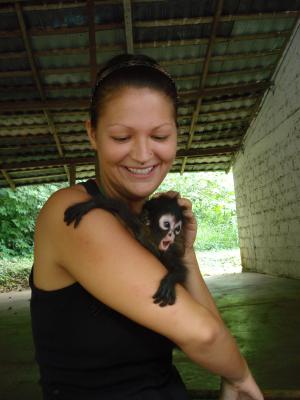Background
The sense of taste in nonhuman primates has been investigated both physiologically behaviorally in a variety of species and for a number of tastants. However, there is only sparse information as to the taste responsiveness of nonhuman primates for the 20 proteinogenic amino acids. This is surprising given that human studies have shown L-amino acids to have distinct and usually complex taste qualities. As proteins, and thus also amino acids which are their building blocks, are an important macronutrient it should be adaptive for nonhuman primates to be able to perceive amino acids upon ingestion. This idea is supported by studies which have shown that the composition of amino acids may affect food intake and dietary choice in mammals.
The food selection behavior of primates suggests that they may use gustatory cues such as the salience of sweet and sour taste to assess the palatability and the nutritional value of fruit. The sense of taste also directs an animal to satisfy its nutritional needs and protects the body from ingesting harmful substances like toxic plant secondary compounds. When animals encounter a food item with a bitter taste they usually reject it or consume only small amounts, since foods with this taste quality may be toxic. Food items with the taste quality “sweet”, in contrast, are usually preferred by animals including human and nonhuman primates.
Spider monkeys (Ateles geoffroyi) are highly frugivorousand include up to 82% of fruit in their diet . The remaining 18% include seeds, leaves, flower buds and animal matter. Spider monkeys are the largest New World monkeys, weighing about 8 kg, with males being slightly heavier than female. The area of distribution of the spider monkeys ranges from southern Mexico till Brazil. Their social groups usually comprise 25 to 40 individuals.

Me and a baby spider monkey named Laro at the field station of the Universidad Veracruzana, near the town of Catemaco , in the province of Veracruz , Mexico
Responsible for this page:
Director of undergraduate studies Biology
Last updated:
05/07/09
